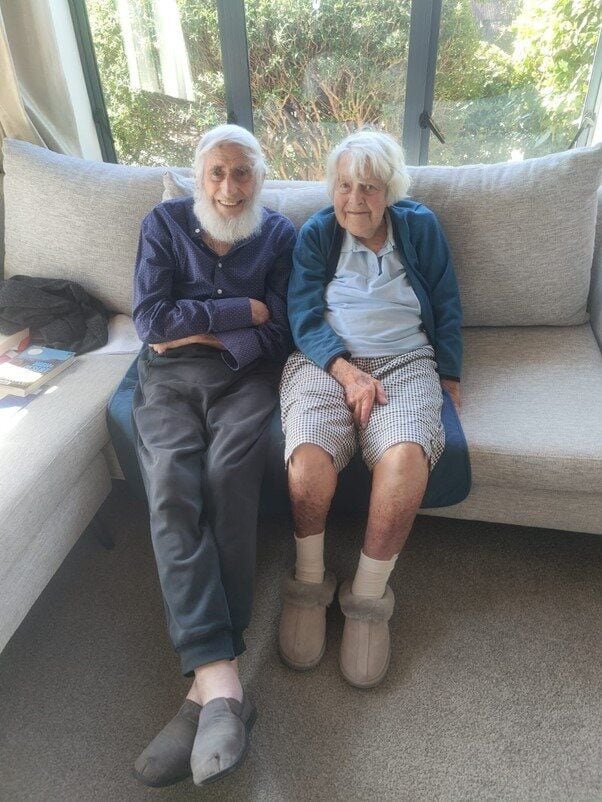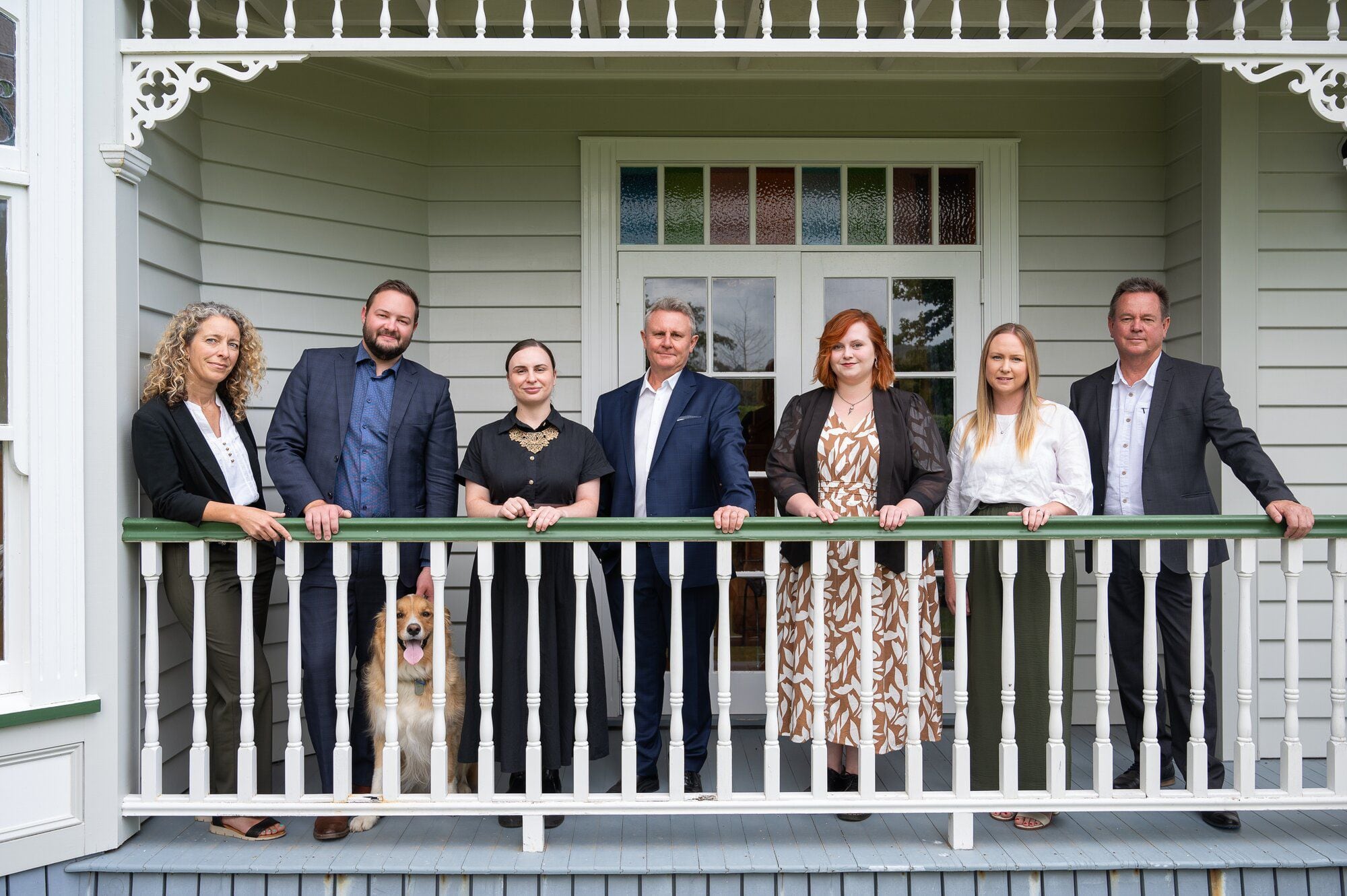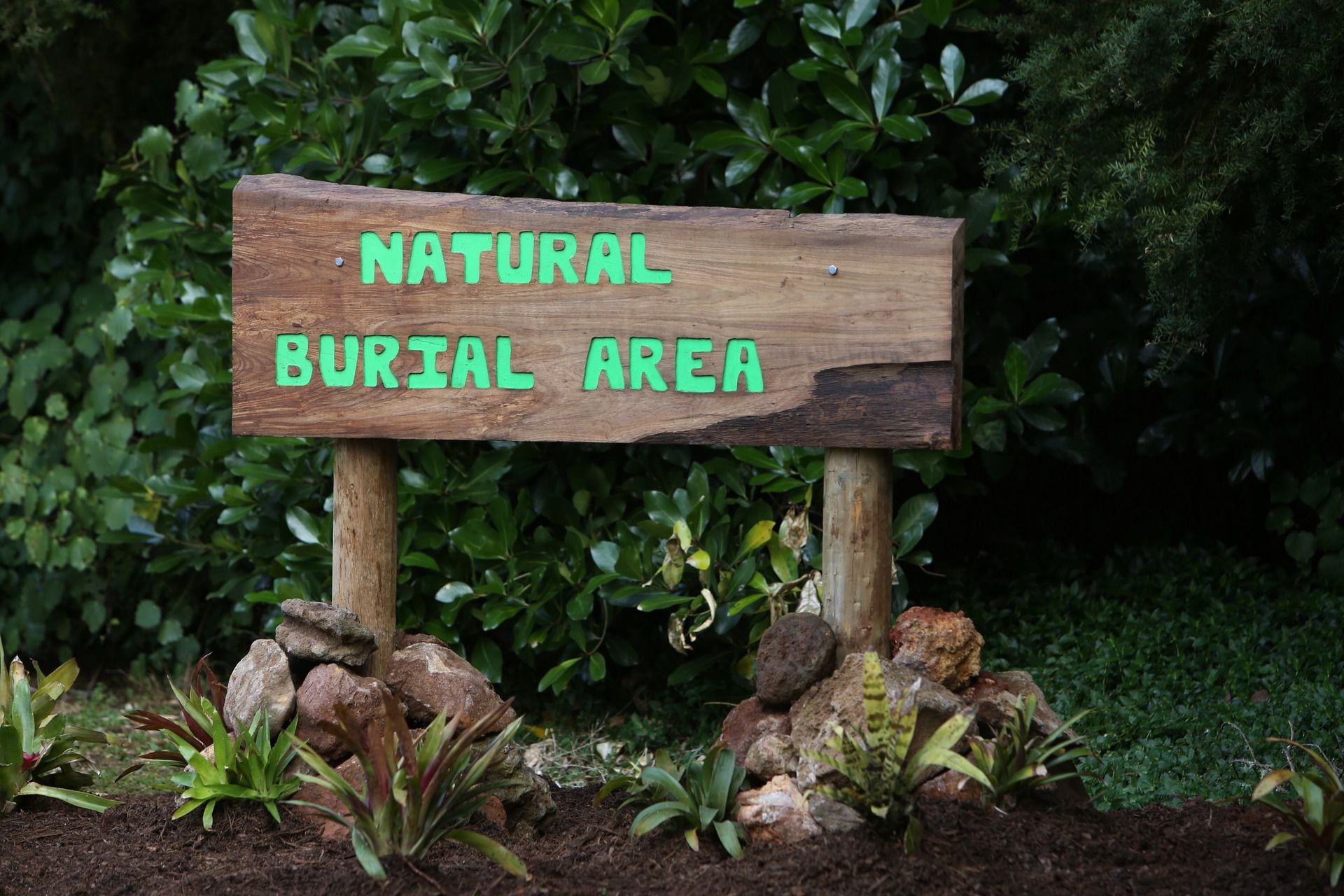Hope Family Funerals is the first funeral service provider to offer certified natural burials in Tauranga.
The Te Puna-based funeral home has been certified by Natural Burials NZ to do natural burials for a more sustainable and environmentally considered burial option.
This means it meets the standards for natural burials, ensuring eco-friendly practices and giving families confidence in choosing sustainable funeral options.
Funeral director Eva Wolf said achieving this certification was important to the team because it reflects their dedication to providing families with meaningful choices that align with their values and priorities.
Natural burials differ from traditional practices by emphasising minimal environmental impact.
The process doesn’t involve embalming, which is often used to preserve the body. Instead, the body will stay in its natural state to avoid introducing chemicals into the soil, which will allow the body to break down much faster.
Helen Kirkham had a natural burial for her mother Jen Kirkham in August 2024 at Hillcrest Cemetery, off Ohope Road. Hillcrest Cemetery is currently the only Bay of Plenty site that allows for natural burials.
Kirkham and her siblings decided they wanted to share their experience with the natural burial process and their mother.
“The burial was attended by nine family members, including two great-grandchildren. We had travelled from Te Puna in three private vehicles, two of us accompanying Mum in the van on her last road trip.
“It was a beautiful, sunny, still winter’s day. A fabulous day for kayaking Mum, we said.”
Before Kirkham’s mother was laid to rest, her grave was bordered by nikau fronds and had been prepared in a grove of tall and established trees at the Whakatane cemetery.
“We placed our mother’s coffin on the gnarly manuka poles, which had been laid across the grave.
“We scattered camellias and leaves from her old garden on top of the coffin.”
After graveside prayers, the family lowered her cardboard coffin and took turns shovelling some of the soil.
“As we farewelled our mother, grandmother great-grandmother, we all agreed that the burial was beautiful and heartful, way beyond all of our expectations,” Kirkham said.
“We all agreed, that given a choice we too would prefer a natural burial — and perhaps we, too, should start lobbying our councils to set aside space for natural burials.”
For the four Kirkham siblings, the decline and deaths of both their elderly parents in 2024 was an intense and demanding experience.
Their father, Bill (William) Kirkham, died in May and had requested a cremation and church funeral to be managed by a funeral home in a traditional way. Their mother had very different ideas of what she wanted.

Helen Kirkham's parents, Bill (William) and Jen Kirkham, both passed away in 2024. Her father, Bill, wanted to be cremated, and her mother, Jen, wanted a natural burial. Photo supplied
She wanted a natural burial while also taking account of her Baha’i beliefs, which stipulated a burial no more than an hour’s journey from a place of death, Kirkham said.
She said their mum had encountered information about natural burials in her early 80s and as an organic gardener.
“It made perfect sense that a body should be wrapped in natural materials and placed in a shallow grave to return as quickly as possible to the soil and thus nourish new growth.”
She had asked her four children to read booklets she had gathered so they would know what to do when the time came.
“Details of caring for and preparing the body of a loved one were way outside all our comfort zones and experiences at the time and most of us avoided going into any kind of detail other than joking about it.”
“The first hiccup in Mum’s planning was that there was no natural burial site in Tauranga, which meant travelling more than the requisite hour (according to Baha’i law) to natural burial spaces in Hamilton or more recently Thames and Whakatane.
“We think Mum approached the local council at that time, however they said that there were no plans for such a burial space in Tauranga. She was furious with their short-sightedness.”
She then figured it would be nice for her to be buried on her family’s private farm in Whakamarama, but this was not legal, and she had to come up with another plan.
“At the time of Dad’s passing, we mentioned that our mother wanted a natural burial, and I believe that this comment set in motion Hope’s process of becoming accredited for natural burial,” said Kirkham.
“The family chose to use Hope to manage the process of caring for and preparing our mother’s body, from the evening of her passing, through to the burial five days later.
“We also used Hope for Mum’s memorial service later that week.”
Anticipated community response
Wolf said they anticipated the Tauranga community would respond positively to the introduction of natural burial options, appreciating the opportunity to choose, if relevant to the person, practices that align with the environmental values and desire for meaningful, sustainable farewells.
“Currently, Tauranga does not have a city council-owned site specifically for natural burials. However, natural burials are available at nearby locations, including Hillcrest Cemetery in Whakatāne, Omahu Cemetery in Thames, and the Forest Grove Natural Burial Area in Hamilton.
“We are also aware of plans for a dedicated natural burial area in Te Puke, which will bring this option closer to our community once operational.
“We also hope this will resonate with Tauranga City Council and that they might consider a local natural burial cemetery in the near future.”
Councils' thoughts
Tauranga City Council significant reserves and environment manager Warren Aitken said if there were to be a natural burial site in Tauranga, it would be at Pyes Pa Memorial Garden and the reason why council doesn’t already have one is because it is “outside TCC Boundary”.
“It is a service that seems to be becoming more popular and providing a different approach for loved ones, however, nothing has been confirmed.”
Aitken said this is a more sustainable method that provides a better environmental outcome for future generations.
Western Bay of Plenty District Council reserves and facilities manager Peter Wilson said the WBOP burial site would be at the Te Puke Cemetery on Dudley Vercoe Drive.
There were no plans at this stage to expand natural burial services in the district.
“As part of the 2021 – 2021 Long Term Plan pre-engagement, we asked the community what burial options they would like to see provided in the future.
“Of the 505 people who responded, 132 told us they would like natural burials to be offered in the district.
“We expect natural burials to be available at Te Puke Cemetery from 2027/28 onwards.
“First, we need to review our Cemeteries Bylaw. Once this has been adopted and funding is available in the Long Term Plan, we will start progressing the site.”
Looking at what’s happening globally, Hope Family Funerals expects the demand for natural burials to brow within and across the region.
“The wider Bay of Plenty may be further ahead with natural burials as Tauranga’s closest natural burial site is currently Whakatane.”

Hope Family Funeral director Eva Wolf and the rest of the team: Oliver Marriner, Harley (the dog), Elise Williams, Dean Hughes, Lydia Burney, Alex Marriner and Tony Hope. Photo / David Hall
Environmental elements
“The environmental benefits of natural burials include supporting ecological restoration, reducing pollution, and contributing to the growth of native bush or forest, creating a lasting natural legacy,” Wolf said.
Sustainable materials of untreated wood, cardboard, or natural fibre shroud will be used to create a casket.
The bodies will be buried in shallow graves in the active soil layer to maximise natural decomposition.
Wolf said a common concern is the idea that animals might dig up a body buried in a shallower grave. “However, proper natural burial practices — such as burying at an appropriate depth and using biodegradable materials — ensure the grave is secure and prevent any disturbance by animals.”
Finally, a native tree will be planted on or near the plot, contributing to the creation of a permanent memorial forest or bushland.
“These practices contrast with traditional burials, which involve embalming, non-biodegradable caskets, and burial in a deeper, inactive soil layer,” Wolf said.
“Natural burials are gaining popularity due to increasing environmental awareness and a desire for simplicity and a return to traditional practices that honour the natural cycle of life and death.”
She said when guiding families in choosing any of the options (cremation, conventional burial or natural burial), they provide clear, honest advice and support to ensure the families feel informed and empowered to make decisions that align with their values, preferences, and budgets.
Families preparing for a natural burial should know that the process emphasises simplicity and environmental sustainability, involving no embalming, the use of biodegradable materials, and the option to plant a native tree as a living memorial.
Wolf said the future of funeral services was evolving with growing interest in environmentally conscious practices.
She said water cremation was another option becoming more available globally and was considered a more environmentally friendly option compared to conventional burial and cremation.
Water cremation — also called Alkaline Hydrolysis — involves dissolving the body in an alkaline solution of potassium hydroxide and water, inside a stainless steel machine called a Resomator. The process takes three to four hours.
This option will soon be available in New Zealand.



0 comments
Leave a Comment
You must be logged in to make a comment.